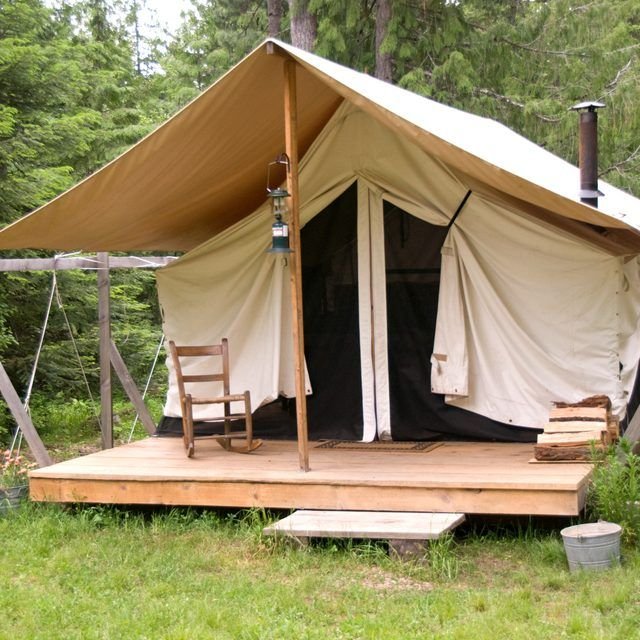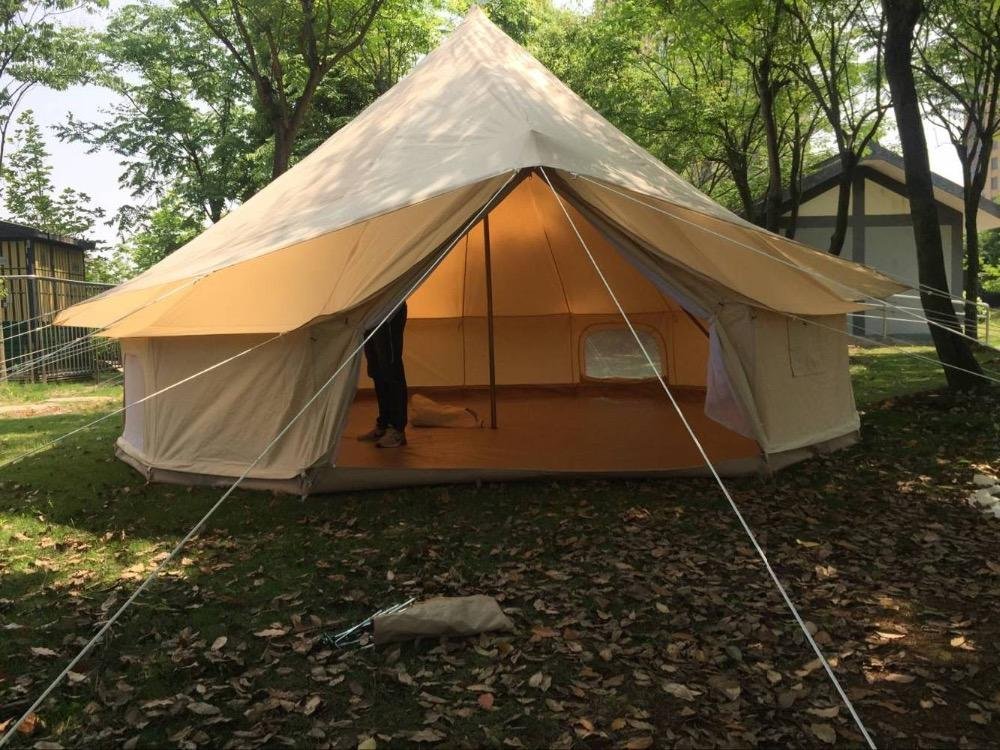Choosing the Right Canvas Tent for Your Glamping Business
As you embark on your exciting journey of starting a glamping business, one crucial aspect to consider is choosing the perfect canvas tent. In this blog post, we'll explore the various factors that will help you make an informed decision about the type of tent that best suits your glamping vision. Let's dive in and discover the ideal canvas tent for your glamping paradise!
Bell Tents vs. Wall Tents
When it comes to canvas tents, two popular options for glamping businesses are bell tents and wall tents.
Bell tents feature a distinctive center pole, which not only provides structural support but also adds a touch of elegance to your glamping setup. The center pole may affect bed placement, as you'll need to consider the height and space required.
On the other hand, wall tents offer more versatility in terms of layout and can accommodate various furniture arrangements. Whether you prioritize aesthetics or flexibility, choosing between bell tents and wall tents depends on your glamping concept and the experience you wish to offer.
Pros and Cons of an Attached Tent Floor
One important consideration when selecting a canvas tent is whether to opt for an attached tent floor. A attached floor is more typically seen in bell tents and provides several benefits, such as enhanced protection against bugs, dirt, and, God forbid, snakes! However, it's essential to note that an attached floor may trap moisture beneath them leading to mildew or mold.
My preference would be to assemble your tent on a platform base and when it comes time to sweeping, simply lift the tent wall and push the dirt out. Very easy.
Should You Consider a Tent with a Stove Jack?
A tent with a stove jack allows for safe and efficient installation of a wood-burning stove or a portable heater. Keep in mind the necessary safety precautions and any local regulations regarding the use of stoves in tents. A tent with a stove jack can elevate the experience for your guests and be a valuable asset if you plan to offer year-round glamping experiences.
Does Your Tent Need to Be Waterproof?
When it comes to canvas tents, waterproofing is of utmost importance. However, if you opt for a tent that’s not designed to withstand rain, you’re in luck. There’s another option on how achieved this: by adding a rain fly cover. Waterproofing your tent will also contribute to the longevity of your investment, minimizing the need for frequent repairs or replacements.
Why Is Tent Ventilation Important?
Proper tent ventilation is crucial for a pleasant glamping experience, especially in warmer climates. Everyone knows the feeling of waking up in a hot tent and feeling like a sweaty raisin. Not only that, the number and placement of the ventilation windows is important. Look for tents with plenty of mesh windows, vents, or adjustable openings to facilitate air circulation.
What Should You Know About Tent Canvas Weight?
Canvas materials can be described in terms of GSM, or grams per square meter. So, the higher the GSM number, the denser the fabric.
Lighter canvas tents require less effort during setup and could be an easy option for mild, dry climates. However, lighter weight may come at the expense of durability and longevity.
Heavier canvas tents tend to be more robust and better equipped to withstand outdoor elements. Assess the specific needs of your glamping business and strike a balance between portability and durability to make an informed decision.
…
Selecting the perfect canvas tent for your glamping business is a significant step toward creating a memorable and comfortable experience for your guests. Consider factors such as tent style, flooring options, stove jacks, waterproofing, ventilation, and canvas weight to make a well-rounded decision. Remember, your choice of tent sets the foundation for your glamping vision, so take your time, explore the options, and choose wisely. Happy glamping!












